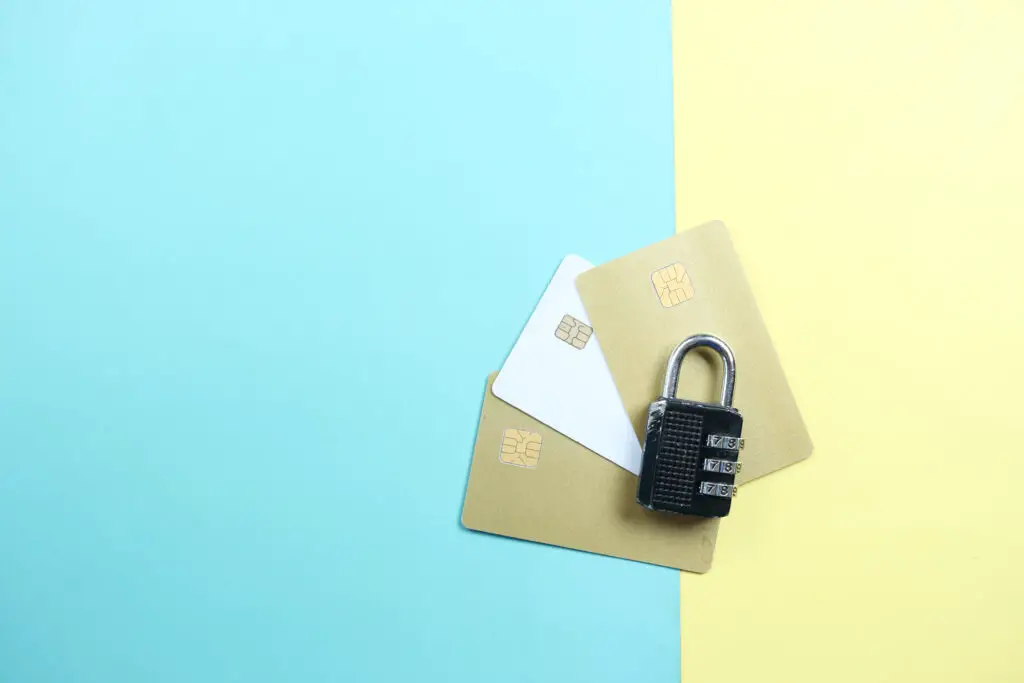Credit Monitoring Services – How Do They Work?
Keeping track of your credit reports regularly gets nearly impossible with just a single free credit report that you are granted from each bureau per year. So, that’s where credit monitoring services come in handy.
These services help you keep track of credit report records every month and aid in credit disputes. More importantly, they help in identity theft protection and reduce the chance of your credit accounts being compromised.
We’ll help you get a better understanding of credit monitoring services as a whole, as well as their benefits and possible limits.
Key Takeaways
- Credit monitoring can be the first barrier of protection against identity theft
- It also helps track your credit report and scores for the benefit of increasing your credit score
- Consumers can get instant alerts and notifications in case of any suspected fraudulent activity with their accounts
- You can use free and paid credit monitoring depending on the services offered
- Credit bureaus also offer their credit monitoring options including free and paid subscription packages
What’s Credit Monitoring?
Credit monitoring is a service that helps you stay informed of any changes that might occur on your credit reports. You can get it as a paid service offered by one of the credit repair and credit monitoring companies, or from the bureaus themselves.

Some services are free, while others include monthly subscription plans with more useful features. For instance, you can pick a monitoring service that gives you insurance of up to $1 million against identity theft.
Usually there are a few reasons why a consumer might choose to undergo credit monitoring:
- Tracking the success of credit repairs
- Protection against identity theft and fraudulent activity
- Following up on disputable information
Overall, it’s quite a useful tool to use as a consumer to stay updated on everything that happens with your credit accounts and reports.
Even free credit monitoring services will provide you with monthly updates on any new accounts opened in your name and changes on your credit reports.
The service gets especially useful in fraud attempts and identity thefts. You can be quickly informed by the service provider and you can take adequate steps like freezing your account.
Although all the credit monitoring services seemingly do the same job for the consumer, there are some vast differences.
You can opt-in for a service offered by the major credit bureaus or an independent agency. Also, you can pick an option that checks on just one of your credit reports, or the one that checks on all three of them.
So, one service might offer just monitoring your Experian credit report, while others can do the same for all major credit bureaus. It’s usually best to look for a credit monitoring agency that follows up on all your reports and offers the three bureau credit monitoring for the safety of your information.
Credit Monitoring And Credit Repairs
Using credit monitoring services makes sense if you are in the middle of a credit repair process. Of course, a lot of it still depends on choosing the right service, and you should only go for those that deliver frequent credit score updates.

You should also pay attention to the credit scoring model used, since most lenders and companies use the FICO score. There’s also the chance of using a credit monitoring service that updates on your VantageScore, which is a slightly different scoring model developed by Equifax.
The best credit monitoring services for those in the middle of a credit repair process include all three credit reports. So, you can follow up on updates from your Equifax credit report, TransUnion credit report, and Experian’s credit report at the same time.
The downside is – you’ll probably have to pay for such a service, since not all free services offer all three credit report checks.
The credit monitoring service is good for a consumer in the credit repair process for two reasons.
First, you’ll get to track your credit score increase month by month, and it isn’t always easy to obtain this information.
Also, you will get notifications about any newly-opened accounts, hard checks on your report, and payments.
If you are in the middle of fixing your credit, the last thing you want to do is let an unauthorized negative item appear on your report.
So, by using a credit monitoring service, the company will instantly notify you and you can immediately proceed to filing a credit dispute.
That way you can remove unauthorized hard checks and other disputable information which would reduce your score.
By using triple bureau credit monitoring, you can get updates on your report and credit scores from all three major credit bureaus. This is the best way towards credit recovery as you get real-time updates, and current credit scores with all three bureaus, so there are no surprises when applying for new credit.
Fraud And Identity Theft Protection
Along with consumers in the credit repair process, credit monitoring services are widely used for protection. The sad truth is that there are thousands of identity thefts in the US every year and hackers can easily access your personal information.
They can then open credit accounts by using your information and you’ll get the negative items on your report as a victim.
Sometimes, they can even register credit cards in your name and use them for online purchases and it all comes back to you. So, credit monitoring is a good way of protection. It won’t protect you by itself, but it provides swift insight into fraudulent activity.
As soon as you receive a notification about suspicious activity on your credit accounts, you can use a credit lock or a credit freeze.

It protects you by preventing creditors and other companies from accessing your credit reports, for the time of the hold. So, identity thieves won’t be able to register any new accounts in your name during that time.
In the meantime, you can file a report to the Federal Trade Commission by following your rights from the Fair Credit Reporting Act.
It allows you to file a fraud alert which appears on your report whenever creditors receive a request for a new account opening. So, they have to double-check it with you to confirm your identity.
While all of these measures are effective against identity theft and other frauds, they are not a complete line of defense.
Credit monitoring does reduce the risk of an identity theft harming your reports and your financial records, but it doesn’t prevent it in any way.
The good thing is – it lets you act swiftly and place a credit freeze on your accounts. If you didn’t use credit monitoring to receive such notifications, your freeze would be too late as the thief can still use accounts previously registered in your name.
About Free Credit Monitoring Services
Now that you know the basics, it’s time to compare the two types of monitoring services – paid and free credit monitoring.
Using a free credit monitoring service can obviously save you a lot of money in the long run.
It doesn’t have to mean that you’ll get poor service either – Credit Karma credit monitoring is one of the best examples.
It lets you monitor your credit reports from Equifax and TransUnion, and receive frequent updates on newly opened accounts, hard pulls, and reported payments.
Here are some of the main benefits of a free credit monitoring service:
- It lets you put your funds to a better use of repaying credit debt
- You still get notifications for changes in your credit report
- They often report from at least one credit bureau
- May help you file a credit dispute based on the report
Credit Karma monitors two reports, which is a great benefit.
However, you still have to get your Experian credit file and report to round it out, and that’s where the benefit of paid services is.
Free credit monitoring services may also offer ID monitoring. It serves as a warning that your personal information might have been used due to exposed passwords.
So, a free service gives you a decent headstart in your credit file protection, while it also serves perfectly fine for tracking your credit score and reports during credit repair.
Are Paid Services Always Better?
On the other hand, there’s the work of credit repair companies and credit monitoring companies that will do the job for a monthly fee.
Paid companies usually offer many more services than a free monitoring solution. However, they cost between $9 and $40 per month on average, and that can make a big difference if you are currently in the credit repair process.
You could certainly use these funds to aid in debt repayment, but it can also be worth your while.
In some instances, paid services even offer to scan the web for your passwords and information to see if any hackers are trying to use them.
On top of that, there are a whole lot of other benefits you can count on with a paid service:
- Information monitoring on the internet and social accounts
- Use of your social security number by other entities
- Three-bureau credit reports
- Premium credit score tracking and counseling
- Tracks the use of your debit and credit cards by other persons
So, it might seem unnecessary to use a paid service, but it can pay off due to a range of useful features. You can have total identity protection and frequent credit score updates, combining the use of these services for rebuilding credit and protecting your credit information.
You are more likely to catch credit card fraud with a paid service, and also get some unique features like dark web scanning.
With the paid service, you can also get a family package that helps track the credit reports of your children or spouse and even get a discount on the packages.
Still, it doesn’t mean that paid services are always better than free options. It all depends on what you need. If you already suspect your identity is being stolen, but don’t want to lose the opportunity to apply for new credit due to a credit freeze, you can use paid protection.
It goes more in depth and gives you complete identity protection. On the other hand, free services can be just as effective in credit repair if that’s the reason why you need credit monitoring.
Credit Monitoring Services Offered By Bureaus
Finally, there’s also the option of using a credit monitoring service from each of the three major credit bureaus.

All three bureaus offer both free and paid services, and you should only have one thing in mind when applying. Namely, the bureaus will have you sign against taking legal action in case anything goes wrong with your information.
And while data breaches are extremely rare, such a thing occurred in 2017 with Equifax and that’s why it might be better to avoid using services from the bureaus.
1) Experian’s Credit Monitoring Plans
If you use a credit monitoring service offered by Experian, you’ll be able to choose from different plans. There’s a free credit monitoring service that allows credit score tracking, notifications and alerts about credit account changes, and online disputes.
Experian also offers a paid program that requires monthly payments of $20. You get some nice features like identity theft alerts, credit repair tools, fraud addressing, and FICO score updates from all three bureaus.
You can use Experian’s mobile app to receive real-time alerts, which is what makes this option so useful.
2) Equifax Credit Monitoring Service
Credit monitoring from Equifax starts at $4.95 a month for the standard package which allows you to get VantageScore updates, alerts for key changes in Equifax reports, and a credit lock function.
On the other hand, you can also choose the Equifax Complete Premier plan which costs $19.95 per month. Still, it offers additional features like Social Security Number tracking and advanced fraud and identity theft detection.
It also includes a web scan feature along with a blocked inquiry alert, which can significantly help in fraud prevention.
3) TransUnion Credit Monitoring
Finally, there’s the TransUnion credit monitoring service which costs a bit more – $24.95 per month. However, it can pay off due to advanced and personalized credit counseling and the chance to access your credit scores and report at any time.
You can also use TransUnion credit tools like the credit score simulator which lets you see how future inquiries and items on your report could affect your score. In terms of fraud prevention, this credit bureau gives you instant alerts and $25,000 in identity theft insurance.
Final Thoughts
Ultimately, credit monitoring services can serve you well in timely fraud detection and during the credit repair process. Using free credit monitoring is perfect for those that just wish to have frequent updates from their credit reports and scores for the benefit of a rating increase.
On the other hand, paid services offer an array of useful features in terms of fraud and identity theft prevention, so it’s up to you to decide on the best option for your situation and needs but hopefully we’ve given you the information to make the best decision in that process.
Frequently Asked Questions (FAQ):
What are three credit monitoring services?
Three-credit monitoring lets you track and receive notifications about all three credit reports from the credit bureaus. The best credit monitoring services include options that provide instant alerts and notifications regarding fraud alerts and identity thefts.
You can also obtain credit scores from each bureau and get access to some premium credit rating tools that even help you boost your credit score.
Do I need to monitor all three credit bureaus?
You need to monitor all three credit bureaus if you wish to get complete fraud protection since hackers could steal your information from any report. Also, if you wish to boost your credit score, it comes in handy to have all the information at your disposal from each credit report.
Is paid credit monitoring better than free monitoring?
It all depends on the type of service you are hoping to get, since free credit monitoring is sufficient for consumers that just wish to keep track of information in their reports.
However, paid monitoring is better for its personalized tools and advanced ID protection.
It’s up to you to pick what’s best for their sake, but paid services do offer a more detailed prevention system in terms of fraud protection.
Is Credit Karma considered credit monitoring?
Yes, Credit Karma offers a free service with notifications about your Equifax and TransUnion reports. It’s one of the best free services you can get, especially for those with the aim to fix their credit rating and keep track of the improvements along the way.
It lacks some premium features like advanced dark web search and ID tracking to help trace the usage of consumer information by other entities.



